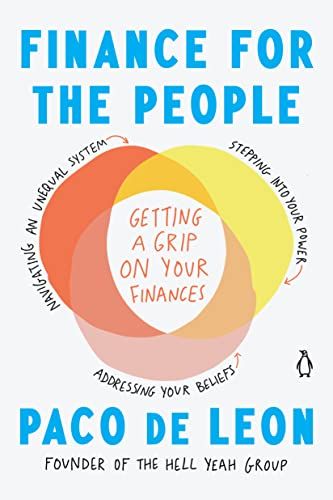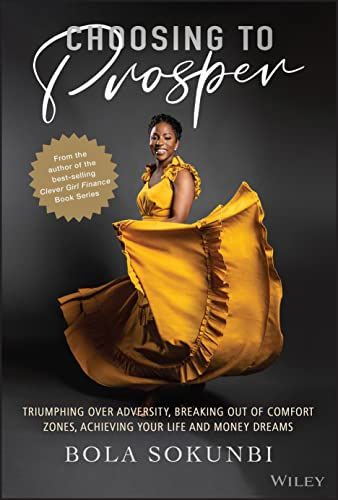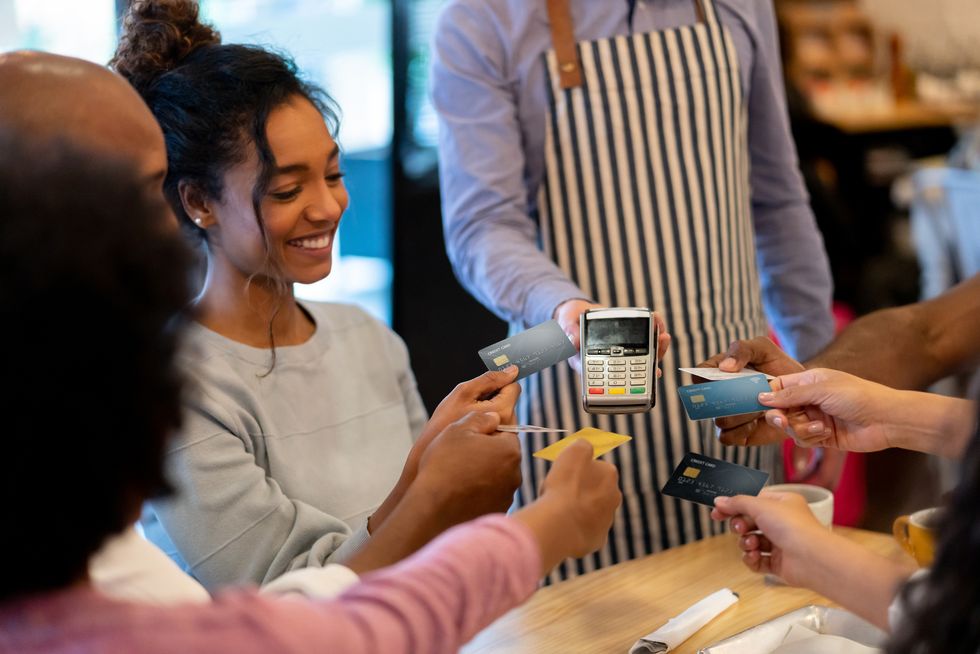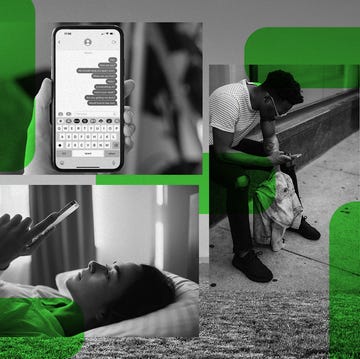Friendships are love stories too. In the Shondaland series The Art of Friendship, we explore and appreciate the beauty and complexities of friendship, as well as what makes it so powerful. From expert tips on how to build friendships and navigate conflicts to uplifting moments of connection, these stories are reminders of the joy, value, and meaning that companionship brings to our lives.
Abby Armato is going on vacation with a group of friends next month. The 28-year-old Illinois native with a knack for happily plotting out details was tasked with finding and booking an Airbnb rental for the group in the Cascade mountains. It was important to Armato to talk openly about limitations and expectations, so she asked her friend circle for their key considerations when it came to amenities and price range.
When she sifted through the responses, Armato found that some of her pals preferred a smaller, less expensive rental and didn’t mind crashing on sofas, while others dreamed of a huge house with a hot tub, river view, and separate bedroom for each person. Realizing these choices come at a price for everyone involved, she brought the information to the group.
They engaged in an open dialogue about what was realistic for everyone’s budget, and to everyone’s surprise, it morphed into a discussion with a deeper impact. The conversation prompted Armato and her friends to not only share their salaries but also air out their complicated feelings surrounding money. Members of the group began opening up about where they are financially, and some were transparent about financial safety nets.
Armato made a PowerPoint presentation with three different Airbnb options for the group to review on a video call. For each slide, she made it a point to ask, “How does everyone feel about this option?” The band of friends trusted everyone to answer honestly about their comfort level investing in each option.
The group landed on splitting the cost of the Airbnb between the mixed-income friend group equitably rather than evenly. One friend made an Excel sheet, plugged in the salaries, and determined what percentage each person would pay. “The original bill split equally would have been like 16.66 percent per person,” Armato says. “After assigning weights based on income, our percentage ranged from 10.65 percent to 26.35 percent.”
Because of the trust and sense of community that had been fostered and nurtured in many other types of conversations, they were able to have a delicate talk about their financial differences. “It was a really lovely environment,” Armato says. “Now, the group feels comfortable having honest conversations about where they are at financially and how they feel about spending their money.”
While Armato has come around to feeling more confident having these conversations, like many people, it wasn’t easy for her at first. “The culture I was raised in,” the nonprofit employee says, “was much more secretive and closed off about sharing salaries and talking about finances.” She’s not alone in the anxiety surrounding opening up about money.
The fear of perception, judgment, and rejection can make talking about finances with friends feel hard to do. Finance for the People author and personal finance expert Paco de Leon says that for friends who have grown up with one another or started out in similar financial backgrounds, it can be more difficult to discuss personal finances as it changes. “You start to find yourselves in different places socioeconomically and financially,” he says, “and that can be challenging.”
Discussing personal topics like finances can be scary, certified financial therapist Amanda Clayman says, because it takes us out of the “superficial playmate” zone with our friends where everybody gets along and never discusses anything too complex. “When we are sharing financial information with people,” Clayman says, “we move from a level of superficiality or stuff that’s low-vulnerability to places that are deeper and where we feel extra vulnerable.”
Armato recalls that when she first saw her salary in comparison to other people’s salaries, she questioned her career and choices. Through these conversations, she’s discovered that this learned behavior of not discussing money hindered her financial literacy and ability to advocate for herself monetarily — at work and otherwise. While it was initially uncomfortable, this level of financial transparency within the group has allowed her to become aware of new possibilities for herself and feel supported.
Clever Girl Finance CEO and Choosing to Prosper author Bola Sokunbi says there are many emotional and tangible benefits to opening up with people you trust about finance, including accountability and insight around various topics like advocating for a raise, investing, paying down debt, or saving. “It’s good to see what other people are doing,” she says, “and how they’re achieving their financial goals.”
Like Armato and her friends, this level of vulnerability not only saves you from spending outside of your means, but it can also deepen your friendships and allow you to feel rooted on by your pals in a new way. If you feel as if part of belonging is being able to afford certain things, it’s important to know that it doesn’t have to cost you extra to belong. Here are methods for navigating money matters with your friends.
Know your price point
When it comes to friends, the financial issues we run into mainly revolve around the choice of how to spend time together. Whether you like to eat out together, see movies and plays, or travel, it’s helpful to have an understanding of what your own personal money goals are.
“Even if you earn exactly the same or your rent is exactly the same,” Clayman says, “you could still have differences. Maybe one of you is more focused on saving for the future, and the other one’s a little bit more ‘live for today.’ That’s still a financial difference.” Decide how much you are willing to spend with your companions, whether by a budget or the number of paid activities.
Communicate your goals
If you’re a few thousand dollars away from a down payment on your future home or are saving for a car, telling your friends what you’re working toward or budgeting for puts them into a sphere of awareness. It also creates intimacy by letting them into your world.
“It’s all about communicating it,” Sokunbi says. In some scenarios, it could lead to great advice on purchasing a home for the first time, for example, or becoming accountability buddies together. By letting them know where you’re at financially, you can avoid the pressure of keeping up with your friends’ spending habits.
Being up front also makes it easier to request a restaurant within your budget, pass on that afternoon shopping spree, or recommend partaking in a fun, cost-free activity like walking in the park, watching movies at home, or hosting a game night.
Ask in advance
We’ve all been in that awkward situation where we decide to stick with water but our friend orders a drink or two, and the check gets split down the middle. Just because you know your budget doesn’t mean your friends do. To avoid conflict or resentment, convey your preference for a joint or separate check before you arrive or agree to an activity.
For example, Clayman offers this script for communicating with your friends ahead of time: “I want to go out to dinner, but one of the ways that I’m saving money for X, Y, Z right now is I’m just doing food — no booze. Do you mind if I just give you cash for my meal at dinner tonight?”
If you’re planning a trip together, Clayman suggests: “We talked about getting together this summer. I’m starting to come up with a budget for what that might look like. Can we talk about that?” If it seems too complicated, don’t be afraid to skip that particular lunch, dinner, or outing. “Your real friends will understand,” Sokunbi says.
Be mindful
Everyone has a different financial situation. Some may be helping family members, managing student loan debt, or are recovering from a large, unexpected bill. “They’re not going to tell you everything,” Sokunbi says, “so you want to be empathetic to other people’s situations.”
While you may be able to afford $200 on a night out doesn’t mean that a friend wants to at that moment — or can. One practice Clayman recommends is floating. Send a menu to friends to look at before going out to eat, and ask what everyone thinks of the restaurant and prices. “It’s not just about the kind of food,” Clayman says. “You’re sending pricing information.”
Ease in
If you want to talk about a specific money subject with your friends, Clayman recommends starting with low-stress, low-vulnerability questions before easing into details that are more vulnerable.
The first time you bring up student loans, for example, you may talk about whether or not you have them, but you might not necessarily want to ask or share the amount until a subsequent conversation. “We can do it in steps,” Clayman says. The financial therapist says that while it’s healthy to test the limits of our comfort zone, we should still honor our friends’ boundaries.
Ask open-ended questions
Opening up about money with your friends can sow more closeness between you. De Leon says a great starting place for a general conversation about money is “Would you like to have more regular conversations about money with me and how to navigate it?” You can suggest talking about different lessons you’ve learned and things you wish you knew, or reading a book on finances together.
“Asking someone if they want to participate is a really great first step,” de Leon adds. “Then, it’s not weird the next time you bring it up.” If you get the feeling that your friend isn’t quite ready to open up, put it on hold for another time or day. De Leon recommends leaving it open for discussion in the future by saying, “Hey, buddy. I’m here to talk if you’re struggling with something.”
Prepare for difficult conversations
Whether you want to set a financial boundary (like you can’t loan your pal any more money) or talk about a monetary behavior you’ve noticed (excessive gambling or destructive spending), some conversations surrounding cash are tougher to have. “That’s part of friendship,” de Leon says, “having difficult conversations.”
Give your friend a heads-up about what you want to talk about. Before speaking with them, try regulating your nervous system by taking a few deep breaths, smelling essential oils, listening to music that hypes you up, or talking to yourself in the mirror à la Insecure. Then, be as human and sympathetic in your approach as possible.
De Leon says showing you are willing to experience uncomfortable emotions by expressing, “This is really hard for me to say” or “I want to have a tough conversation with you,” goes a long way.
Be delicate
Money, in general, carries a plethora of associated emotions around it. Expressing the need to conserve money or revealing how much one makes can be terrifying or bring out triggers. “That’s coming from a vulnerable place,” Clayman says. “It’s no wonder people are trepidatious about going there.”
Before entering these conversations, remember that talking about finances is not easy for everyone. “Try to extend some grace not only to ourselves, but to the people in our lives on this topic,” Clayman adds. With practice, money can become a regular subject in your everyday conversations with friends and bolster how we interact with one another.
Respect differences
Friends don’t always have to align on how they choose to spend their money. You and your pals may have different goals, come from different socioeconomic backgrounds, or experience financial difficulties or realizations at different times, but those alone aren’t deal-breakers.
“A lot of it boils down to character and values,” Sokunbi says. If you feel judged by your friend, the money expert says it’s okay to avoid financial conversations with them. “You get to talk about so many other things under the sun. It doesn’t necessarily have to be about finances if it’s not a good vibe.”
As long as your friends support and encourage you on your journey, and don’t talk down about your financial situation or your ambitions, you can navigate anything together in the future.
Mia Brabham is a staff writer at Shondaland. Follow her on Twitter at @hotmessmia.
Get Shondaland directly in your inbox: SUBSCRIBE TODAY



















